Book Digest: July 23, 2007
A note to the feral fans of J.K. Rowling: Seeing them live in a seemingly endless video loop, and knowing there are apparently huge piles of lucre at stake in her latest revenue center make it hard for me to look upon that hoopla as a benign event. The last go-round I remember being deeply offended at the crassness of one advertisement: “Don’t be the last one on your block to get the latest Harry Potter.” Why not? I thought—at least there would be some distinction in that.
You may not remember David Wojnarowicz—there is that unforgettable collage he created of buffalo going over a cliff—who said: “Even in the face of something like gravity, one can jump at least three or four feet in the air and even though gravity will drag us back to earth again, it is in the moment we are three or four feet in the air that we experience true freedom.”
Apollo’s Song by Osamu Tezuka, translated by Camellia Nieh
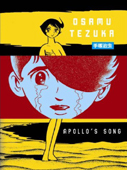
Tezuka, a highly respected artist and storyteller, shows the life of Shogo, who, as the publisher synopsizes:
…is a young man whose abusive childhood has instilled in him a loathing for love… His hate is such that the gods intervene, cursing Shogo to experience love throughout the ages ultimately to have it ripped from his heart every time. From the Nazi atrocities of World War II to a dystopian future of human cloning, Shogo loses his heart, in so doing, healing the psychic scars of his childhood hatred.
The text is compelling and the art trumps it—a fine example of the iffy graphic novel genre.
» Read an excerpt from Apollo’s Song
McSweeney’s No. 22
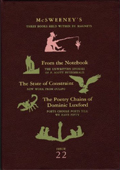
This issue of McSweeney’s continues to fool around with formats, bindings, and other design trickery and amusements. This edition features three separate soft-cover volumes under one hard cover. The first is 17 Scott Fitzgerald story ideas by Sam Lipsyte, Nick Flynn, Judy Budnitz, Rachel Ingalls, Matthew Sharpe, and others. The second is a poet’s version (like Mary Karr, Denis Johnson, Michael Ondaatje) of a chain letter. Section three is stuff by, uh, legendary Oulipians. (Who, you say?) All in all, another fine issue chock-a-block with literary delights.
Mr. Pip by Lloyd Jones
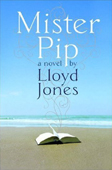
Charles Dickens would applaud the expropriation of Great Expectations for this original narrative, which takes place on an unnamed, resource-rich tropical island that has become a war zone. The odd and unorthodox Mr. Watt, the last remaining white man, cleans out the schoolhouse that has fallen into disrepair and begins reading to the native children. This is an amazing and resonant story about stories and the power of the imagination. New Zealander Jones won the 2007 Commonwealth Prize for this, his seventh book.
» Read an excerpt from Mr. Pip
Comedy by the Numbers: The 169 Secrets of Humor and Popularity edited by Eric Hoffman and Gary Rudoren
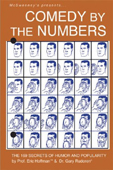
Hoffman and Rudoren collect 169 “rules” of comedy for this so-called guide, including “menstruation,” “Mickey Rooney,” and “Oy vey! Humor”—complete with simple line drawings and two pre-punched binding holes. Typical of McSweeney’s marketing savvy—indistinguishable from their sense of irony—is this description:
This book is perfect for people who are funny and for those who aren’t funny—thus it is marketable to 100% of the population. As we all know, true creativity comes from simple formulas and the memorization of data. This new bible makes the secrets of comedy accessible, not only to those funny few among us, but also to those who might not have the ability or talent to be funny.
The Oxford Companion to American Food and Drink edited by Andrew F. Smith
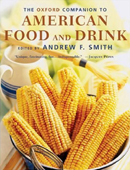
Surveying the American culinary terrain with 1,000 articles by over 200 experts chosen by culinary historian Smith, this compendium will whet the appetite of anyone who delights in food, trivia, and social history. Find out where the Blimpie comes from, who invented the cheesecake, what a boilermaker is, how Piggly Wiggly changed grocery stores—and a real winner: the history of White Castle.
Leviathan: The History of Whaling in America by Eric Jay Dolin
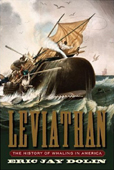
In case your reading of Moby-Dick has left you short on the subject of whaling, environmentalist Dolin charts this dangerous occupation’s history from Captain John Smith’s 1614 New World whaling expedition through its golden age in the mid-19th century to its inevitable decline in the 20th century (the discovery of oil was its death knell). It’s an amazing, eye-opening history, and Dolin’s book does it well.
» Read an excerpt from Leviathan
The Abandonment of the Jews: America and the Holocaust, 1941-1945 by David S. Wyman

When published in 1984, this book—an unlikely bestseller—caused something of a stir by winning numerous prizes. This paperback reissue should not go unnoted—it includes a new preface by David Wyman reviewing various ongoing controversies ignited by this very touchy subject. By the way, you might want to peek at another revealing book along the same lines, Buried by the Times: The Holocaust and America’s Most Important Newspaper, which was published in 2005.
From Guilt to Shame: Auschwitz and After by Ruth Leys
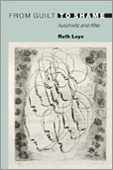
For this book Leys’s publisher offers this discouraging gobbledygook:
Ultimately, Leys challenges the theoretical and empirical validity of the shame theory proposed by figures such as Silvan Tomkins, Eve Kosofsky Sedgwick, and Giorgio Agamben, demonstrating that while the notion of survivor guilt has depended on an intentionalist framework, shame theorists share a problematic commitment to interpreting the emotions, including shame, in anti-intentionalist and materialist terms.
Oh really? Leys clarifies—a bit:
In this book I therefore plan to show that the concept of survivor guilt is inseparable from the notion of the subject’s unconscious identification with the other. Conversely, I seek to demonstrate that, in spite of the apparent diversity of approaches proffered by today’s theorists, shame theory conforms to the antimimetic pole of trauma theory because it displaces attention from the guilty subject’s unconscious yielding to the enemy to the shamed subject’s anti-mimetic consciousness of being seen.
A big if, but if you can penetrate the academic jargon this book there is much to be learned on the guilt-to-shame metamorphosis.
» Read an excerpt from From Guilt to Shame
Blood of Paradise by David Corbett
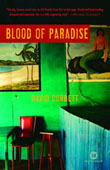
Though El Salvador was the hotspot du jour in the 1980s, American visions of Sandinista tanks crossing the Rio Grande have since been supplanted by numerous other flare-ups. Thus, it’s refreshing and instructive that Corbett here fashions a powerful story reminiscent of Robert Stone and Graham Greene in El Salvador, one that John Connolly calls “a Quiet American for the new century. Angry and impassioned, Blood of Paradise is that rare beast: a work of popular fiction that is both serious and thrilling.”
KOP by Warren Hammond
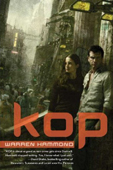
Though I am not a science fiction reader, I am drawn to noir and hardboiled thrillers in any setting. Rookie writer Hammond gives us tainted cop Juno, who is euchred by a greedy company to emigrate to the planet Lagarto. Despite being on the pad, Juno is driven to expose the evil cabal intent on enslaving Lagarto, and is presented with all the usual stuff of crime stories—crooked officials, dead bodies, unpromising leads, and a beautiful-but-chancy partner—in his pursuit of the answer to the perennial question: Whodunit?
» Read an excerpt from KOP
The Edge of Evolution: The Search for the Limits of Darwinism by Michael Behe
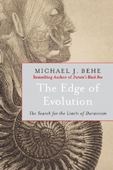
Behe’s first book, 1996’s Darwin’s Black Box, has been credited—at least by his publisher—with launching the intelligent design movement. Describing his follow-up, the Free Press asserts: “There is little question that all species on earth descended from a common ancestor. Overwhelming anatomical, genetic, and fossil evidence exists for that claim. But the crucial question remains: How did it happen?”
Richard Dawkins responds:
Darwin’s Black Box
Who ya gonna believe?
» Read an excerpt from The Edge of Evolution
